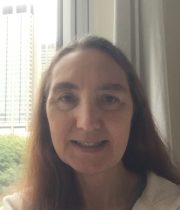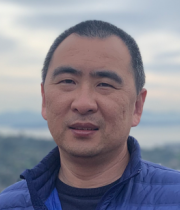OLIGONUCLEOTIDE THERAPEUTICS
WEST COAST
San Francisco
February 7, 2023
Welcome to hubXchange’s West Coast Oligonucleotide Therapeutics 2023, bringing together executives from pharma and biotech to address and find solutions to the key issues faced in oligonucleotide therapeutics.
Discussion topics will cover New Modalities, Oligonucleotide Discovery, Manufacturing and Drug Delivery.
Take advantage of this unique highly interactive meeting format designed for maximum engagement, collaboration and networking with your peers.
Venue Details: DoubleTree by Hilton San Francisco Airport Hotel, 835 Airport Boulevard, Burlingame, CA 94010-9949
SNAPSHOTS OF DISCUSSION TOPICS
- Target selection for oligonucleotide therapeutics
- Recent advances in oligonucleotide therapeutics development
- Drugging the genome to address base causality
- Best practice for the oligonucleotide therapeutics hit-to-lead process
- Reviewing oligonucleotide conjugate therapeutics
- Targeted delivery of RNA using viral biology
- Challenges in drug substance and drug product manufacturing
- Regulatory CMC Challenges
- Analytical control strategy for oligonucleotide manufacturing
- New receptors for targeted delivery of oligonucleotides
- Reviewing lipid-encapsulation and nanostructures/ polymers with focus on LNP delivery technology for nucleic acid Tx
- Revisiting peptide and lipid conjugation for oligonucleotide delivery
Full Xchange Agenda
Click on each track for detailed agenda
New Modalities
Opening Address & Keynote Presentation
n-Lorem: Industrializing the treatment of nano-rare patients for free for life
(Presented by ChemGenes)
n-Lorem is a non-profit foundation I established in January of 2020 with the mission of discovering, developing and providing experimental ASOs to nano-rare patients (patients with mutations expressed in <30 patients worldwide, for free for life. The combination of the efficiency of the technology and the special guidance issued by the FDA for ASOs to be provided for free to nano-rare patients makes the mission possible. To date, we have received more than 180 applications for treatment and accepted more than 80 patients for treatment. We established processes that assure that patients are exposed only to prudent risks and that each step in the process is the highest quality possible and that we learn maximally from each patient and the aggregate experience. I will describe the progress registered to date and our plans.
Founder and Chief Executive Officer, n-Lorem Foundation
(invited guest of ChemGenes)
Dr Crooke is founder, chairman and chief executive officer of n-Lorem, a nonprofit foundation focused on providing treatments for patients with nano-rare disease patients (1 to 30 patients worldwide), which he initiated in January 2020. Prior to n- Lorem, Dr. Crooke founded and was Chairman and Chief Executive Officer and Lead Scientist of Ionis Pharmaceuticals. During his tenure at Ionis, he led the scientific development of a new platform for drug discovery, antisense technology and the creation of one of the largest and more advanced development pipelines in the biotechnology industry, and commercialized several antisense drugs including, Spinraza, Tegsedi and others. Early in Dr. Crooke’s career, he led the creation of the first broad anticancer program in the industry at Bristol-Myers, bringing numerous anticancer drugs to the market in the first five years of his career. He then assumed responsibility for worldwide R&D (president) at SmithKline Beckman (now GSK). During his tenure at SKB, Dr. Crooke led the restructuring of R&D and the development of several drugs that were commercialized.

Target selection for oligonucleotide
therapeutics
- When to use oligonucleotide-based therapeutics approach?
- ASOs vs SiRNA to address specific needs?
- CRISPR-CAS9 technology for gene editing
- How is specificity addressed at the design phase of the drug?
- How can specificity be improved for oligonucleotide based drugs?
Associate Director, Head of Bioanalytics, Switch Therapeutics
Shilpi Mahajan was a Senior Scientist at AstraZeneca in the Bioanalysis group. She is a Molecular Biologist and her current focus is on new drug modality areas including mRNA-LNP, Antisense Oligonucleotides (ASO) and Cell therapy (CAR-T). She has been the lead scientist for the strategy design and development of a number of assays in new drug modality. She has developed droplet digital PCR (ddPCR) and qPCR based assays for CAR-T programs. Prior to joining AstraZeneca she worked at Genentech in the oncology biomarker development group and contributed to the strategy design and development of assays for both small and large molecules. She has also worked on liquid biopsy and extracellular vesicles.
Shilpi received her PhD from the International Center for Genetic Engineering & Biotechnology (ICGEB), New Delhi and did her postdoctoral studies at UCSF. Her career interests include molecular biology, immuno-oncology and biomarker development.

n-of-1 batches from the perspective of a CMO
Working with the n-of-1 sponsors
Lessons learned based on n-of-1 projects to date
What does the future landscape look like in this area
Director of Custom Oligonucleotides, ChemGenes
Jeremy Little is currently the director of custom oligonucleotides at ChemGenes Corporation in Wilmington, MA, and is responsible for the company’s custom oligonucleotide manufacturing group. He joined the team at ChemGenes in early 2019, having more than 10 years of experience in the field of nucleic acid drug discovery and oligonucleotide manufacturing. Prior to joining ChemGenes, Jeremy held positions at AnaSpec, BioSpring GmbH, and Pfizer. While at Pfizer, he established and managed on-site oligomer production laboratories to support Pfizer’s internal efforts in the field of oligonucleotide drug discovery. Before his transition into the world of oligonucleotides, Jeremy spent the first 7 years of his career as a medicinal chemist at Pfizer and Millenium Pharmaceuticals. He received his Ph.D. from the University of Wisconsin-Madison in 2001 where he developed a novel route into the ring system of a class of compounds termed aziridinomitosenes and related to Mitomycin-C.

Networking Lunch
13:20 – 13:50
Poster Session
Ensuring therapeutic efficacy and safety: analytical considerations to characterize and monitor nucleic acids API, lipid nanoparticles and associated impurities
Americas Biopharmaceutical Market Development Manager, Waters Corporation
Ann Gray has held a number of positions including sales and business development. Prior to joining Waters she learned her analytical instrumentation analyzing tobacco and purifying proteins at United States Department of Agriculture. She has a Masters degree in biology from New Mexico State University and a bachelor of science degree from Juniata College.

Recent advances in oligonucleotide therapeutics development
- Review of the recent successes in oligonucleotide therapeutics. What can we learn from these successes?
- Discussion of novel targets, mechanisms, pathways and therapeutic indications. Oligo therapeutics in non-orphan indications?
- Personalized medicine and the possible role for oligonucleotide therapies.
Vice President Drug Development, Alto Neuroscience
Bruce Morimoto has over 25 years of industry experience in leading project teams in the development of innovative medicines, providing guidance in the design and execution of preclinical, clinical and regulatory strategies with a therapeutic focus in Parkinson’s, Alzheimer’s and frontotemporal dementias. Previously, Bruce held leadership roles at Alkahest, Celerion, Cerecin and Allon Therapeutics, and works closely with the Michael J Fox Foundation, chairing one of their scientific review panels. He is an advisor to several biotech companies helping to move their programs through clinical development and drug registration. Bruce started his career on the faculty in the Chemistry Department at Purdue University where his independent research focused on neuronal signal transduction.
Bruce earned his doctorate in biochemistry from UCLA and completed a postdoctoral fellowship at the University of California Berkeley.

Oligonucleotide Discovery
Opening Address & Keynote Presentation
n-Lorem: Industrializing the treatment of nano-rare patients for free for life
(Presented by ChemGenes)
n-Lorem is a non-profit foundation I established in January of 2020 with the mission of discovering, developing and providing experimental ASOs to nano-rare patients (patients with mutations expressed in <30 patients worldwide, for free for life. The combination of the efficiency of the technology and the special guidance issued by the FDA for ASOs to be provided for free to nano-rare patients makes the mission possible. To date, we have received more than 180 applications for treatment and accepted more than 80 patients for treatment. We established processes that assure that patients are exposed only to prudent risks and that each step in the process is the highest quality possible and that we learn maximally from each patient and the aggregate experience. I will describe the progress registered to date and our plans.
Founder and Chief Executive Officer, n-Lorem Foundation
(invited guest of ChemGenes)
Dr Crooke is founder, chairman and chief executive officer of n-Lorem, a nonprofit foundation focused on providing treatments for patients with nano-rare disease patients (1 to 30 patients worldwide), which he initiated in January 2020. Prior to n- Lorem, Dr. Crooke founded and was Chairman and Chief Executive Officer and Lead Scientist of Ionis Pharmaceuticals. During his tenure at Ionis, he led the scientific development of a new platform for drug discovery, antisense technology and the creation of one of the largest and more advanced development pipelines in the biotechnology industry, and commercialized several antisense drugs including, Spinraza, Tegsedi and others. Early in Dr. Crooke’s career, he led the creation of the first broad anticancer program in the industry at Bristol-Myers, bringing numerous anticancer drugs to the market in the first five years of his career. He then assumed responsibility for worldwide R&D (president) at SmithKline Beckman (now GSK). During his tenure at SKB, Dr. Crooke led the restructuring of R&D and the development of several drugs that were commercialized.

Best practice for the oligonucleotide
therapeutics hit-to-lead process
- What are the key optimizations most people adopt to get lead candidates from initial hits?
- How the design of the oligos (siRNA and ASO) impacts its potency, efficacy and safety
- What are the risks and benefits with novel monomer modifications (sugar, nucleobase and phosphate backbone)
- Tools to mitigate the toxicities in ASO and siRNA modalities
Senior Principal Scientist ASO/siRNA Drug Discovery Protein Chemistry, Genentech
Santhosh has over 11 years of industry experience in medicinal chemistry and drug discovery of small molecules and oligonucleotides. He is currently working as Senior Principal Scientist and head of ASO/siRNA oligonucleotide drug discovery at Genentech. He previously worked at Aligos therapeutics, Johnson & Johnson, ChemGenes Corporation and National Institute of Health. He worked on various modalities of oligonucleotide chemistry (siRNA, ASO, STOPs/NAPs) for developing novel class of modified nucleic acids with potential therapeutic applications in various disease areas such as COVID-19, HBV, oncology and CNS. He has explored various strategies to deliver nucleic acids to extrahepatic tissues such as lung, tumor and CNS (LNPs, Lipid conjugated siRNA). With prior experience in designing and synthesis of modified nucleosides for antiviral (COVID-19/HBV/Rhino Virus), oncology (STING) and cardiovascular diseases (GPCRs), he has proven ability to design, synthesize novel nucleoside compounds for commercialization purposes.

Networking Lunch
16:10 – 17:10
Reviewing oligonucleotide conjugate therapeutics
- Manufacturing challenges starting off: how to get acceptable quality attributes at lab scale
- Pros and cons of utilization of off-the-shelf linkers
- In-silico and HTS approaches toward lead optimization
- Manufacturing landscape expertise for conjugates
Senior Director, Early-Stage
CMC Leader, Apellis Pharmaceuticals
Rosario Mollo heads the Early-Stage Technical Development Team at Apellis Pharmaceuticals, spanning a range of drug delivery technologies including siRNA and biological therapeutics. Rosario has an extensive background in product design, translational sciences, and regulatory strategies, moving complex early-stage drug development programs through the pipeline. Before starting with Apellis, Rosario led CMC at Escape Bio, a neurodegenerative disease start-up, in South San Francisco (CA). Previously, Rosario held management positions at Ultragenyx, Heron Therapeutics, and Elan. She holds a Ph.D. in Pharmaceutics from Trinity College, University of Dublin, Ireland, and a Pharmacy Degree from the University of Buenos Aires, Argentina.

Senior Manager, Drug Substance, MSAT, Apellis Pharmaceuticals
Xiaoyong Zhao is a Senior Manager at Apellis Pharmaceuticals. In his current role, his major responsibilities include process optimization, scale-up and validations. Prior to Apellis, Xiaoyong held various CMC roles at Nektar Therapeutics, Sarepta Therapeutics and Momenta Pharmaceuticals and contributed to the development of multiple clinical and commercial products. Xiaoyong has a broad experience in the CMC development and manufacturing of a variety of modalities including polypeptides, oligonucleotides and biologics. He received his Ph.D. in chemistry from the University of Florida and continued his academic endeavor as a postdoctoral researcher at MIT and UC Berkeley before starting his industry career.

Manufacturing
Opening Address & Keynote Presentation
n-Lorem: Industrializing the treatment of nano-rare patients for free for life
(Presented by ChemGenes)
n-Lorem is a non-profit foundation I established in January of 2020 with the mission of discovering, developing and providing experimental ASOs to nano-rare patients (patients with mutations expressed in <30 patients worldwide, for free for life. The combination of the efficiency of the technology and the special guidance issued by the FDA for ASOs to be provided for free to nano-rare patients makes the mission possible. To date, we have received more than 180 applications for treatment and accepted more than 80 patients for treatment. We established processes that assure that patients are exposed only to prudent risks and that each step in the process is the highest quality possible and that we learn maximally from each patient and the aggregate experience. I will describe the progress registered to date and our plans.
Founder and Chief Executive Officer, n-Lorem Foundation
(invited guest of ChemGenes)
Dr Crooke is founder, chairman and chief executive officer of n-Lorem, a nonprofit foundation focused on providing treatments for patients with nano-rare disease patients (1 to 30 patients worldwide), which he initiated in January 2020. Prior to n- Lorem, Dr. Crooke founded and was Chairman and Chief Executive Officer and Lead Scientist of Ionis Pharmaceuticals. During his tenure at Ionis, he led the scientific development of a new platform for drug discovery, antisense technology and the creation of one of the largest and more advanced development pipelines in the biotechnology industry, and commercialized several antisense drugs including, Spinraza, Tegsedi and others. Early in Dr. Crooke’s career, he led the creation of the first broad anticancer program in the industry at Bristol-Myers, bringing numerous anticancer drugs to the market in the first five years of his career. He then assumed responsibility for worldwide R&D (president) at SmithKline Beckman (now GSK). During his tenure at SKB, Dr. Crooke led the restructuring of R&D and the development of several drugs that were commercialized.

Regulatory CMC Challenges
- Learning and sharing regulatory strategies and experience on significant drug substance and drug product manufacturing changes
- Regulatory strategies for process validation, method validation, and specification settings
- Specific regional challenges surrounding regulatory filings, batch release, and inspections
Senior Director Regulatory Affairs, Ultragenyx Pharmaceutical
So-ching Brazer is Senior Director of Regulatory CMC at Ultragenyx. So-ching has over 18 years of Regulatory CMC experience working with therapeutic drugs of different modalities, including synthetic oligonucleotides, mRNA, small molecule drugs, attenuated live viral vaccines, monoclonal antibodies, and gene therapy. So-ching has a Ph.D. in Molecular and Cell Biology from University of California, Berkeley, and formerly a researcher at NIH prior to joining the industry.

What are your expectations of a drug substance oligonucleotide contract manufacturer?
- What are the timeline and scale expectations?
- What is most important factors in selecting your CMO – relationship, cost, timelines, project management
- How important is innovation and the move towards greener processes
Director, Business Development (US), PolyPeptide
Trishul is involved in industry peer groups such as the TIDES Advisory committee, Boulder Peptide Symposium Scientific Board, a member of the PolyPeptide Group’s Executive Strategic Team in the US and member of the Global Management Group at PolyPeptide.

Challenges in drug substance and drug product manufacturing
Manufacturing lead times for drug substance and commercial capacity
Optimizing drug product concentration and compounding efficiency
Senior Director, Early-Stage
CMC Leader, Apellis Pharmaceuticals
Rosario Mollo heads the Early-Stage Technical Development Team at Apellis Pharmaceuticals, spanning a range of drug delivery technologies including siRNA and biological therapeutics. Rosario has an extensive background in product design, translational sciences, and regulatory strategies, moving complex early-stage drug development programs through the pipeline. Before starting with Apellis, Rosario led CMC at Escape Bio, a neurodegenerative disease start-up, in South San Francisco (CA). Previously, Rosario held management positions at Ultragenyx, Heron Therapeutics, and Elan. She holds a Ph.D. in Pharmaceutics from Trinity College, University of Dublin, Ireland, and a Pharmacy Degree from the University of Buenos Aires, Argentina.

Senior Manager, Drug Substance, MSAT, Apellis Pharmaceuticals
Xiaoyong Zhao is a Senior Manager at Apellis Pharmaceuticals. In his current role, his major responsibilities include process optimization, scale-up and validations. Prior to Apellis, Xiaoyong held various CMC roles at Nektar Therapeutics, Sarepta Therapeutics and Momenta Pharmaceuticals and contributed to the development of multiple clinical and commercial products. Xiaoyong has a broad experience in the CMC development and manufacturing of a variety of modalities including polypeptides, oligonucleotides and biologics. He received his Ph.D. in chemistry from the University of Florida and continued his academic endeavor as a postdoctoral researcher at MIT and UC Berkeley before starting his industry career.

16:10 – 17:10
Analytical control strategy for oligonucleotide manufacturing
- Current common practice
- ID and impurity analysis, when and where
- Analytical control for crude or DS pooling
- Comparability
Chief Executive Officer, Synoligo Biotechnologies
Xibo Li is currently the CEO of Synoligo Biotechnologies in Morrisville, NC. Having seen many small biotech and pharma companies struggling in procuring reliable and high quality oligonucleotide or finding talent trained in oligonucleotide, he founded Synoligo to address these unmet needs. Xibo has many years of direct experiences in the oligonucleotide contract manufacturing business. In his most recent role, he spearheaded the effort of building an oligo CDMO business from ground up in the US. He also consults with many startup companies as CMC SME.

Drug Delivery
Opening Address & Keynote Presentation
n-Lorem: Industrializing the treatment of nano-rare patients for free for life
(Presented by ChemGenes)
n-Lorem is a non-profit foundation I established in January of 2020 with the mission of discovering, developing and providing experimental ASOs to nano-rare patients (patients with mutations expressed in <30 patients worldwide, for free for life. The combination of the efficiency of the technology and the special guidance issued by the FDA for ASOs to be provided for free to nano-rare patients makes the mission possible. To date, we have received more than 180 applications for treatment and accepted more than 80 patients for treatment. We established processes that assure that patients are exposed only to prudent risks and that each step in the process is the highest quality possible and that we learn maximally from each patient and the aggregate experience. I will describe the progress registered to date and our plans.
Founder and Chief Executive Officer, n-Lorem Foundation
(invited guest of ChemGenes)
Dr Crooke is founder, chairman and chief executive officer of n-Lorem, a nonprofit foundation focused on providing treatments for patients with nano-rare disease patients (1 to 30 patients worldwide), which he initiated in January 2020. Prior to n- Lorem, Dr. Crooke founded and was Chairman and Chief Executive Officer and Lead Scientist of Ionis Pharmaceuticals. During his tenure at Ionis, he led the scientific development of a new platform for drug discovery, antisense technology and the creation of one of the largest and more advanced development pipelines in the biotechnology industry, and commercialized several antisense drugs including, Spinraza, Tegsedi and others. Early in Dr. Crooke’s career, he led the creation of the first broad anticancer program in the industry at Bristol-Myers, bringing numerous anticancer drugs to the market in the first five years of his career. He then assumed responsibility for worldwide R&D (president) at SmithKline Beckman (now GSK). During his tenure at SKB, Dr. Crooke led the restructuring of R&D and the development of several drugs that were commercialized.

09:05 – 10:05
New receptors for targeted delivery of oligonucleotides
- Which receptors are most promising for delivering oligonucleotides to certain organs and cell types?
- What makes a good receptor? How can they be identified?
- How can off-target effects be avoided for receptors that are present on many tissue types?
- Several classes of targeting molecules are available (antibodies, VHHs, aptamers, peptides, etc). What’s the best way to choose a targeting molecule type?
Nanoparticle and Protein Chemist, Genentech
Sara Wichner is a nanoparticle and protein chemist at Genentech, where she has worked with lipid nanoparticles for RNA delivery, MHCI-conditional ligands for T cell staining, and antibody-oligo conjugates. During her PhD at UC Berkeley, she studied the motion of the motor protein kinesin using quantum dot nanoparticles for high-resolution single-molecule microscopy.

Networking Lunch
13:20 – 13:50
- Optimer binders offer the affinity and selectivity of antibodies in a smaller, oligonucleotide format
- Understand how Optimer conjugates provide targeted delivery to target cells or tissues to overcome the delivery challenge of oligonucleotide therapeutics
- Learn about Optimer-siRNA conjugates that are being developed to offer novel therapeutic strategies for improved therapeutic function of oligonucleotide therapies
Business Development Manager, Aptamer Group
Zeesharn has nearly a decade’s experience in life science research and sales, with a commercial
focus on oligonucleotide applications and analysis. With both a BSc in Genetics and an MSc in Cancer Pharmacology, Zeesharn leads the business development for custom Optimer binders for the West Coast, USA.

Reviewing lipid-encapsulation and nanostructures/ polymers with focus on LNP delivery technology for nucleic acid Tx
16:10 – 17:10
- Limitations and challenges for oligonucleotide based drug delivery
- GalNac based conjugations
- Cell penetrating peptides (CPP): Applications to the delivery of oligonucleotides
- Mechanisms of Peptide-Mediated Delivery
Associate Director, Head of Bioanalytics, Switch Therapeutics
Shilpi Mahajan was a Senior Scientist at AstraZeneca in the Bioanalysis group. She is a Molecular Biologist and her current focus is on new drug modality areas including mRNA-LNP, Antisense Oligonucleotides (ASO) and Cell therapy (CAR-T). She has been the lead scientist for the strategy design and development of a number of assays in new drug modality. She has developed droplet digital PCR (ddPCR) and qPCR based assays for CAR-T programs. Prior to joining AstraZeneca she worked at Genentech in the oncology biomarker development group and contributed to the strategy design and development of assays for both small and large molecules. She has also worked on liquid biopsy and extracellular vesicles.
Shilpi received her PhD from the International Center for Genetic Engineering & Biotechnology (ICGEB), New Delhi and did her postdoctoral studies at UCSF. Her career interests include molecular biology, immuno-oncology and biomarker development.

